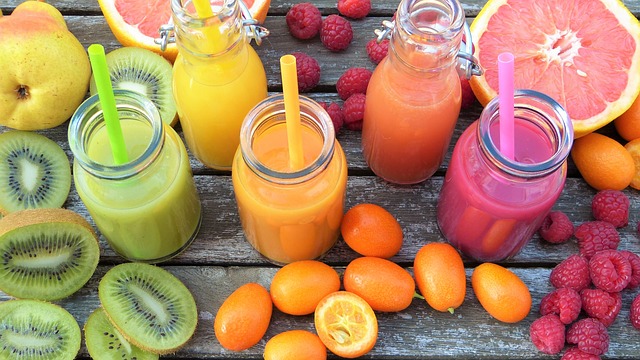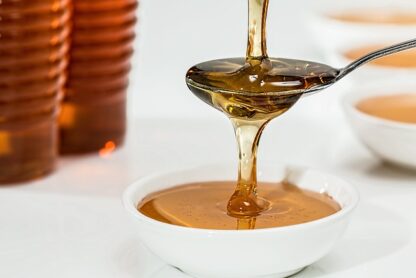Introduction
When it comes to getting your daily dose of fruit, is it better to drink your calories or eat them? It’s a debate that’s been going on for years, and there are pros and cons to both options. Here’s a look at the health benefits of juice and whole fruit so you can decide which is right for you.
The case for juice:
- Juice is an easy way to get your recommended daily intake of fruits and vegetables.
- It’s a good source of vitamins and minerals, including vitamin C and potassium.
- Juice has less sugar than some whole fruits, so it may be a better option if you’re trying to watch your sugar intake.
The case for whole fruit:
- Whole fruit contains fiber, which helps fill you up and can aid in digestion. Juicing removes the fiber from fruits and vegetables.
- Whole fruit also contains antioxidants and phytonutrients that may have health benefits, such as reducing inflammation or protecting against disease.
- You’re more likely to eat the skin of a whole fruit, which is where many of the nutrients are found. The skin of some fruits, like apples, also contains pectin, a type of soluble fiber that has been linked to health benefits like lower cholesterol levels.
Nutritional Differences Between Juice and Fruit
When it comes to juicing or eating fruit, which is the healthier option? The answer may surprise you.
While both options offer health benefits, there are some key differences between juice and fruit that you should be aware of. Here’s a closer look at the nutritional differences between juice and fruit:
Fruit is a good source of fiber, vitamins, and minerals. Juicing removes the fiber from fruit, meaning you’ll miss out on those important nutrients.
Fruit also contains natural sugar, while most juices are made with added sugar. This can cause your blood sugar to spike, which can be harmful for people with diabetes or other blood sugar disorders.
Juice is a concentrated source of calories and nutrients. Just one cup of orange juice has over 120 calories and 22 grams of sugar! That’s more than twice the calories and sugar of an entire orange. So if you’re trying to watch your weight, juicing may not be the best option.
The bottom line? Both fruit and juice can be part of a healthy diet. But if you’re looking for the most nutritional bang for your buck, fresh fruits and vegetables are always your best bet.
Benefits of Eating Fruit
There are many benefits to eating fruit. Fruit is a good source of vitamins and minerals, it is low in calories and fat, and it is a great way to get your daily intake of fiber.
Eating fruit can help you lose weight or maintain a healthy weight. This is because fruit is packed with fiber and water, which helps you feel full and satisfied after eating. Plus, the natural sugars in fruit can give you a boost of energy without the crash that comes from processed sugars.
Fruit is also good for your heart health. The antioxidants in fruit can help to lower your risk of heart disease and stroke. And, since fruit is low in sodium, it can help to keep your blood pressure under control.
Eating fruit can also improve your gut health. The soluble fiber in fruit helps to feed the good bacteria in your gut, which improves digestion and overall health.
So, next time you’re reaching for a snack, reach for some fruit instead! Your body will thank you for it.
Benefits of Drinking Juice
There are many benefits of drinking juice, and it’s a great way to add more fruits and vegetables to your diet. Juicing can help you meet your daily recommended intake of fruits and vegetables, and it’s a convenient way to get your nutrient fix.
Juice is packed with vitamins, minerals, and antioxidants that can boost your health. Drinking freshly squeezed juice is a great way to get an immediate dose of nutrients. It’s also a good choice for people who have trouble meeting their daily recommended intake of fruits and vegetables.
Some studies suggest that juicing may help improve blood sugar control, lower blood pressure, reduce inflammation, and promote weight loss. While more research is needed to confirm these potential health benefits, there’s no harm in adding some freshly squeezed juice to your diet.
Potential Risks with Juicing
When it comes to juicing, there are potential risks that need to be considered. First and foremost, if you are juicing fruits and vegetables that are high in sugar, you could be consuming too much sugar. This can lead to weight gain, insulin resistance, and other health problems. Therefore, it’s important to choose fruits and vegetables that are lower in sugar when juicing.
In addition, juicing can also remove important nutrients from the fruits and vegetables, such as fiber. Fiber is important for keeping you feeling full and helping to regulate blood sugar levels. Without fiber, you may find yourself feeling hungrier more often or experiencing blood sugar spikes after drinking juice. Therefore, it’s important to consider how juicing might impact your overall diet and nutrition.
Finally, there is the issue of cost. Juicers can be expensive, and buying fresh fruits and vegetables for juicing can also add up quickly. If you’re on a budget, consider whether juicing is worth the investment before diving in headfirst.
Best Ways to Consume Juice and Fruit
Assuming you would like tips on how to consume juice and fruit:
One way to get the most out of your juice or fruits is by consuming them fresh. This means that you should try to eat them as soon as possible after they have been juiced or cut. If you let them sit for too long, they will start to lose their nutrients.
Another way to get the most out of your juice or fruit is by drinking it with a straw. This helps the liquid bypass your teeth so that it can go straight to your throat and then into your stomach where it will be absorbed more quickly.
You should also avoid sipping your juice or eating your fruit slowly over a long period of time. This allows the sugars in the juice or fruit to ferment and turn into alcohol, which can be harmful to your health. Instead, drink or eat your juice or fruit all at once so that you can enjoy its nutrients right away.
Conclusion
As you can see, it is a difficult question to answer whether juice or fruit is the healthier option. While both have their benefits and drawbacks, it ultimately comes down to personal preference and lifestyle. If you are looking for increased health benefits without added sugar, then fresh fruits are probably the better choice as they contain more vitamins and minerals while still providing natural sweetness. However, if you want an occasional treat that’s low in calories but high in flavor, then opt for freshly-made juices with minimal additives or preservatives. In either case, making sure your diet consists of a balanced variety of whole foods will ensure that your body gets all the essential nutrients it needs!









